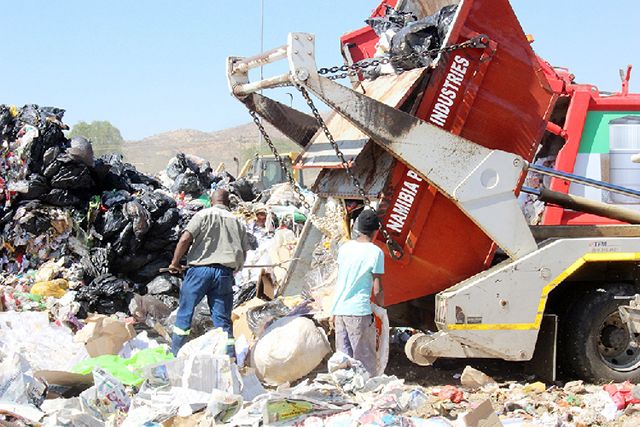JOHANNESBURG – The H5N1 strain of avian influenza, or bird flu, remains a global threat, but while southern Africa should prepare for its emergence, the region needed to bear in mind that the disease has yet to mutate into a deadly human strain, a World Health Organisation (WHO) expert told Irin.
News reports suggesting that least one case of bird flu in humans had been identified in the Indian Ocean island of Reunion raised concern late last month, but these reports proved inaccurate after medical tests were conducted by French authorities. Dr William Aldis, a WHO representative in Thailand, said it was important to remember that H5N1 had not yet converted into a transmissible human pathogen and remained an avian disease.”We have to distinguish between the current infection of H5N1 in birds, which is widespread and seems to be extending its range – which is a problem in agricultural and economic terms.But as far as human infection, in a year and a half there’s only been a 120-something cases – it’s rare to find human infection and it’s difficult for people to get it,” he noted.”Transmission in the majority of cases has been under conditions of very close and prolonged contact with infected poultry in the context of backyard farming, which is more intimate than commercial farming,” said Aldis.Although this meant bird flu had serious implications for the poultry industry and small-scale farmers, which had to be addressed by means of bio-security measures, the danger to humans was small.”There are three possible scenarios: the first is that H5N1 may turn out to be not a good virus for converting into a human strain; the second is that it does become a highly pathogenic transmissible strain and causes lots of deaths; or it becomes a mildly pathogenic strain in a form that’s just a bad flu,” Aldis explained.However, he warned that any human strain of H5N1 in southern Africa, in the context of HIV-AIDS and a public health sector weakened by a lack of both human and material resources, could spell trouble.”People living with HIV-AIDS are at higher risk, and that is a particular concern for the Southern African region, given the high rates of infection,” he pointed out, but this could be mitigated by planning ahead.”Individual country planning processes should be multi-sectoral; every country should be encouraged and assisted in pandemic planning,” Aldis noted.South Africa’s department of health said it was working closely with the WHO and other countries in exploring response measures to control an avian flu outbreak.”Together with the National Institute of Communicable Diseases we are constantly reviewing the country’s flu epidemic prevention and management plan,” the department said.”In the absence of a vaccine to prevent the spread of the virus, countries around the world have been discussing a variety of options, including the stockpiling of the Tamiflu drug, said to be the best medicine available today to treat the virus,” the department commented.However, Tamiflu was not yet registered in South Africa.”The Medical Control Council (MCC) has made an urgent request to the ministry of health to allow the acceleration of the process of registering Tamiflu, with the view to procure the drug for use in South Africa.This means that the MCC are requesting an approval to give the drug priority over other medicines awaiting evaluation,” the department noted.Aldis said that Tamiflu, brand name of the drug Oseltamivir, was effective against H5N1, “and we hope it will be effective against a human pathogenic strain – but there’s not enough around, as just one company makes it”.- Irin NewsDr William Aldis, a WHO representative in Thailand, said it was important to remember that H5N1 had not yet converted into a transmissible human pathogen and remained an avian disease.”We have to distinguish between the current infection of H5N1 in birds, which is widespread and seems to be extending its range – which is a problem in agricultural and economic terms.But as far as human infection, in a year and a half there’s only been a 120-something cases – it’s rare to find human infection and it’s difficult for people to get it,” he noted.”Transmission in the majority of cases has been under conditions of very close and prolonged contact with infected poultry in the context of backyard farming, which is more intimate than commercial farming,” said Aldis.Although this meant bird flu had serious implications for the poultry industry and small-scale farmers, which had to be addressed by means of bio-security measures, the danger to humans was small.”There are three possible scenarios: the first is that H5N1 may turn out to be not a good virus for converting into a human strain; the second is that it does become a highly pathogenic transmissible strain and causes lots of deaths; or it becomes a mildly pathogenic strain in a form that’s just a bad flu,” Aldis explained.However, he warned that any human strain of H5N1 in southern Africa, in the context of HIV-AIDS and a public health sector weakened by a lack of both human and material resources, could spell trouble.”People living with HIV-AIDS are at higher risk, and that is a particular concern for the Southern African region, given the high rates of infection,” he pointed out, but this could be mitigated by planning ahead.”Individual country planning processes should be multi-sectoral; every country should be encouraged and assisted in pandemic planning,” Aldis noted.South Africa’s department of health said it was working closely with the WHO and other countries in exploring response measures to control an avian flu outbreak.”Together with the National Institute of Communicable Diseases we are constantly reviewing the country’s flu epidemic prevention and management plan,” the department said.”In the absence of a vaccine to prevent the spread of the virus, countries around the world have been discussing a variety of options, including the stockpiling of the Tamiflu drug, said to be the best medicine available today to treat the virus,” the department commented.However, Tamiflu was not yet registered in South Africa.”The Medical Control Council (MCC) has made an urgent request to the ministry of health to allow the acceleration of the process of registering Tamiflu, with the view to procure the drug for use in South Africa.This means that the MCC are requesting an approval to give the drug priority over other medicines awaiting evaluation,” the department noted.Aldis said that Tamiflu, brand name of the drug Oseltamivir, was effective against H5N1, “and we hope it will be effective against a human pathogenic strain – but there’s not enough around, as just one company makes it”.- Irin News
Stay informed with The Namibian – your source for credible journalism. Get in-depth reporting and opinions for
only N$85 a month. Invest in journalism, invest in democracy –
Subscribe Now!










